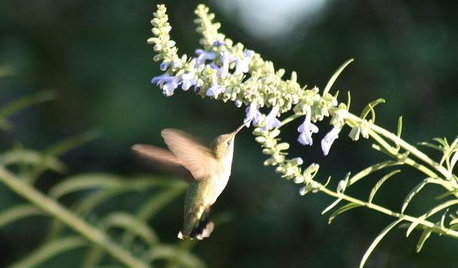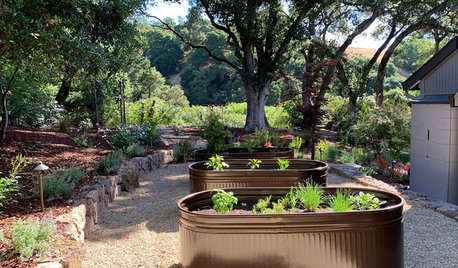Looking to start backyard market gardening
tampasteve
15 years ago
Related Stories

GARDENING AND LANDSCAPINGCitrus 101: Start Your Own Backyard Orchard
This Earth Day Weekend, Add Some Green, Style and Deliciousness to Your Landscape
Full Story
GARDENING GUIDESHow to Stop Worrying and Start Loving Clay Soil
Clay has many more benefits than you might imagine
Full Story
GARDENING FOR BUTTERFLIESA Quick-Start Guide to Bird-Watching for Fun and Learning
Set out some seed and grab your field guide. Bird-watching is an easy, entertaining and educational activity for the whole family
Full Story
FARM YOUR YARD6 Things to Know Before You Start Growing Your Own Food
It takes time and practice, but growing edibles in the suburbs or city is possible with smart prep and patience
Full Story
GARDENING GUIDES10 Tips to Start a Garden — Can-Do Ideas for Beginners
Green up your landscape even if you're short on time, money and knowledge, with these manageable steps for first-time gardeners
Full Story
HOUSEPLANTSHow to Grow Orchids Indoors
Orchids are the exotic aristocrats of the flower world and can make themselves comfortable in almost any home
Full Story
MOVINGTips for Winning a Bidding War in a Hot Home Market
Cash isn’t always king in a bidding war. Get the home you want without blowing your budget, using these Realtor-tested strategies
Full Story
GARDENING AND LANDSCAPINGNew This Week: 3 Fire Pits Herald the Start of Summer
Toast summer — and marshmallows — with these sizzling fire pit designs recently uploaded to Houzz
Full Story
DECORATING GUIDESDecorating 101: How to Start a Decorating Project
Before you grab that first paint chip, figure out your needs, your decorating style and what to get rid of
Full Story
REMODELING GUIDESFollow a Ranch House Renovation From Start to Finish
Renovation Diary, Part 1: Join us on a home project in Florida for lessons for your own remodel — starting with finding the right house
Full StorySponsored


adahlberg
bagardens (Ohio, Zone 5b)
Related Professionals
Ballwin Landscape Architects & Landscape Designers · Cary Landscape Architects & Landscape Designers · Jennings Landscape Architects & Landscape Designers · Rancho Palos Verdes Landscape Architects & Landscape Designers · Severn Landscape Architects & Landscape Designers · Billerica Landscape Contractors · Columbine Landscape Contractors · East Haven Landscape Contractors · El Mirage Landscape Contractors · Long Branch Landscape Contractors · Lynchburg Landscape Contractors · Mason Landscape Contractors · Streamwood Landscape Contractors · Woodland Landscape Contractors · Saratoga Solar Energy Systemsadahlberg
gringojay
rjinga
boulderbelt
tampasteveOriginal Author
gringojay
jds912
hanselmanfarms
boulderbelt